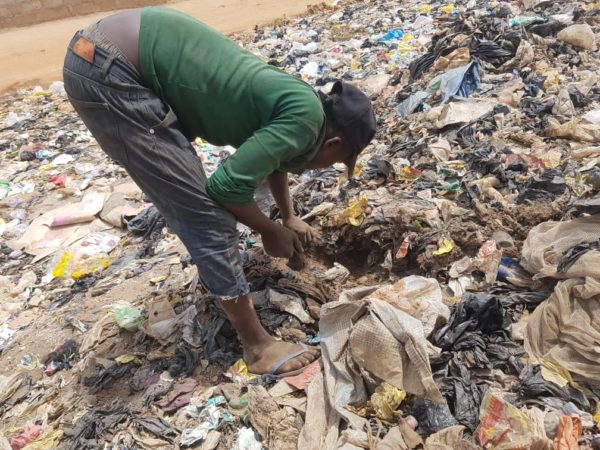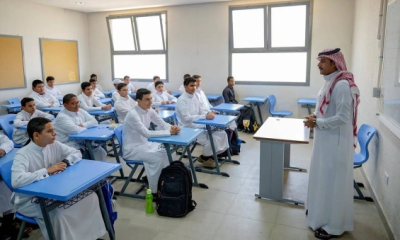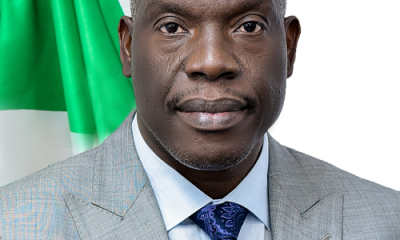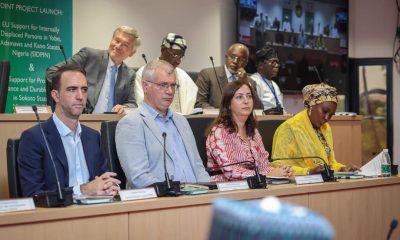NEWSXTRA
Nigerian Government Insists Scavengers Deserve Adequate Remuneration

The Nigerian government has urged environmental stakeholders to recognise the value of waste pickers (scavengers), also known as Baban Bolla, and ensure that they are adequately compensated for their valuable contributions to the country’s environmental sustainability and equitable waste management system.
Balarabe Lawal, Minister of Environment, made the call on Tuesday in Abuja during a stakeholders’ consultative meeting on the development of a National Digital repository for Nigerian waste pickers.
To address the issue that these waste management heroes face, he stated that stakeholders must work together to implement solutions that improve working conditions for waste pickers.
The Minister stated: “Some of these include the following measures, formalisation, and recognition: Bringing waste pickers into the formal waste management system.
“Training and capacity building: Improving skills and knowledge for greater safety and efficiency; Social protection and inclusion, including access to healthcare, education, and social services; Policy and regulatory framework: Developing laws and policies to protect waste pickers’ rights and interests.
Lawan emphasised that waste pickers are the foundation of waste recovery, contributing significantly to recycling and the circular economy.
He stated, “We cannot discuss sustainable waste management without mentioning the operation of waste pickers, who are an important component of the waste management value chain.
“Waste pickers are unsung heroes, but they provide essential services that protect our environment and public health. In recognition of this critical role, the Federal Ministry of Environment, in collaboration with the International Labour Organisation (ILO) and Tearfund Nigeria, is organising this stakeholders forum to develop a National Digital repository for waste pickers to address the myriad of challenges they face in the course of
The minister stated that they are an informal group that engages in all aspects of waste management, including collection, sorting, transportation, processing, and the sale of recovered and recyclable materials to make a living.
He stated, “They have established such a high network of operation and distribution of valuables both within and outside the country, they can therefore not be overlooked in the value chain. The growing demand for recyclable materials and the transition to a circular economy makes it very imperative for governments and the general public to recognise, regulate, and integrate waste pickers into the overall waste management effort in order to unlock the immense economic potential.”
Lawan noted that: “Waste pickers in Nigeria face the following challenges: they live in shanties or makeshift houses.
“Their activities are not formalised, resulting in a lack of coordination and regulation by government agencies; they are exposed to a variety of health hazards and risks as a result of hazardous waste exposure; and they do not have access to adequate medical facilities or first aid treatment.”
Mr Stephen Agugua, National Project Coordinator at the ILO, stated that a concerted effort is required to ensure that waste streams are effectively controlled through sound waste management practices.
He explained that when waste is properly managed, it provides opportunities for job creation in the circular economy, which can help to strengthen local economies and expand opportunities for decent employment.
Agugua stated, “These considerations have motivated the ILO’s interventions and actions in this sector; as a UN agency, the ILO is also bound by the Fair Circularity Principles, which apply the expectations and responsibilities outlined in the UN Guiding Principles on Business and Human Rights to the informal waste sector.”
Shift (2022) published a summary of principles from corporate engagement on human rights in the informal waste sector.
He did, however, express concern that, despite their critical environmental and public health role, waste pickers frequently face significant human rights violations.
“Under the UNGPs, internationally recognised human rights are defined in the International Bill of Human Rights, which includes the Universal Declaration of Human Rights and core ILO standards, as well as the principles concerning fundamental rights in the eight ILO core conventions as outlined in the ILO Declaration on Fundamental Rights and Principles at Work.”He said.
Agugua also stated that the ILO and its constituent partners are committed to ensuring a sustainable future that meets the standards of decent work around the world.
He also emphasised that the ILO recognises the critical role of informal waste sector workers in the plastics waste and recycling value chain.
“To respect the rights of informal waste sector workers by preventing and addressing human rights impacts experienced by those workers, in accordance with the nature of the company’s involvement, He suggested that all partners in the plastics packaging recycling value chain work together to create a cohesive and comprehensive approach.
Additionally, government actors should create enabling environments for rights-respecting business practices.
-
CRIME4 years ago
PSC Dismisses DCP Abba Kyari, To Be Prosecuted Over Alleged $1.1m Fraud
-
FEATURED4 years ago
2022 Will Brighten Possibility Of Osinbajo Presidency, Says TPP
-
FEATURED2 years ago
Buhari’s Ministers, CEOs Should Be Held Accountable Along With Emefiele, Says Timi Frank
-
BUSINESS & ECONOMY2 years ago
Oyedemi Reigns As 2023’s Real Estate Humanitarian Of The Year
-
SPORTS2 years ago
BREAKING: Jürgen Klopp Quits Liverpool As Manager At End Of Season
-
SPORTS2 years ago
Could Liverpool Afford Kylian Mbappe For €200 million? Wages, Transfer Fee
-
ENTERTAINMENT2 years ago
Veteran Nigerian Musician, Basil Akalonu Dies At 72
-
FEATURED2 years ago
Tribunal Judgement: Peter Obi Warns Of Vanishing Electoral Jurisprudence, Heads To Supreme Court
-
BUSINESS & ECONOMY2 years ago
Oyedemi Bags ‘Next Bulls Award’ As BusinessDay Celebrates Top 25 CEOs/ Business Leaders
-
FEATURED3 years ago
2023 Presidency: South East PDP Aspirants Unite, Demand Party Ticket For Zone



































